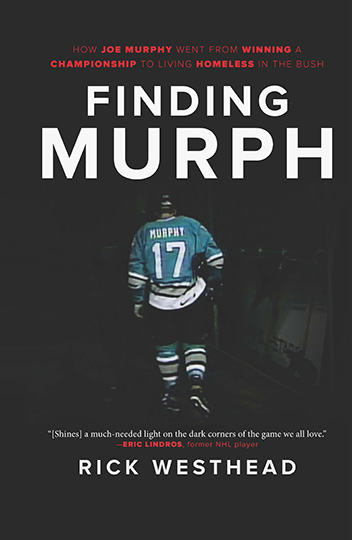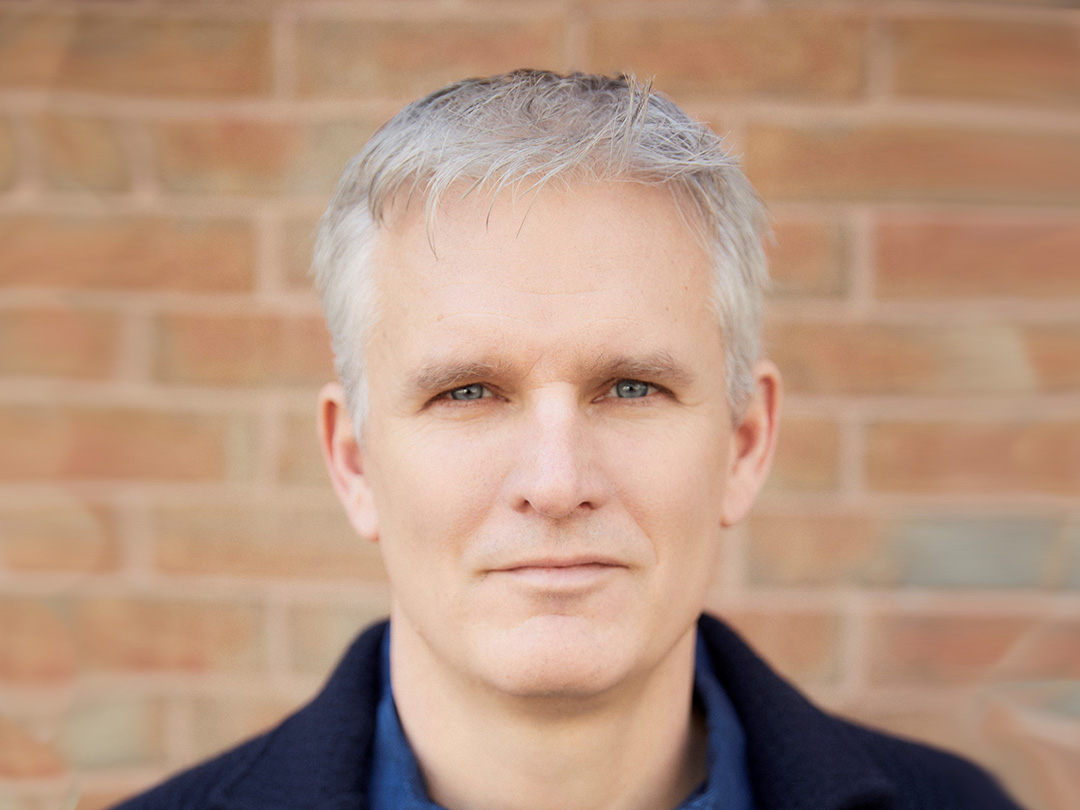RSJ alum explores a devastating fall from grace

In "Finding Murph: How Joe Murphy Went From Winning a Championship to Living Homeless in the Bush (external link) ," Rick Westhead (RSJ ‘95) writes about Joe Murphy’s journey from first overall draft pick and NHL stardom to a devastating fall from grace and life on the streets of Kenora, Ont. due to the after-effects of repeated head trauma.
Rick Westhead is a senior correspondent for TSN and a contributor to CTV National News and W5.
Let’s talk about the launch. How has the promotion for the book gone so far?
Well the planned launch had to be cancelled. We were hoping to do a couple different events with different libraries and different centres where we were going to talk about this publicly. But you can't do that.
I've done a number of media interviews, but they've either been on the phone or [on Zoom].
What led you to write this book?
I think the topic of brain injuries in professional sports is an important one. We’ve seen in the United States, publications like the New York Times and networks like ESPN dig into this, as well as in Canada, where hockey is such a part of our sports life and social fabric.
This is the story of one player's rise to the National Hockey League, and then tragic fall after he left the game. But, it's also more than that. It’s a chance to memorialize and document the actions or — should I say inactions — of the National Hockey League, when they've had opportunities to do better.
You've done a fair bit of writing on concussions and CTE. How do you think that informed your writing in the book?
I think it helped because I've been in a position where I've had a chance to get to know people who are leading experts in that field. Dr. Ann McKee from Boston University, I visited her in Boston to talk about this. I've done many stories where I've interviewed Dr. [Charles] Tator as well, not to mention other neurologists, neuropathologists, and neuro psychologists, real experts in the field.
When you are talking to people who are the best at what they do, and your topic of reporting happens to be what their expertise is, you can't help but benefit.
What was it like to interact with Joe Murphy, and those who were closely connected to him?
It’s not easy. When someone is living homeless, you can't just say, give me your cell phone number or give me your address. The first thing you have to do is find them every time you do an interview with them. I kept making trips back from Toronto to Kenora over the last couple years to see Joe. I'd fly to Winnipeg, rent a car and drive two hours east, back across the Ontario border looking for him.
Every time it was a roll of the dice whether I would find him or not. I knew the areas that he frequented, whether it was shelters or whether it was a motel room that the National Hockey League Alumni Association had agreed to pay for a period of time. Yet, it was very difficult just even to find him in the first place.
On to the NHL as an institution, what do you anticipate the league’s reaction to this book being?
I don't know. I would love for them to have a meaningful discussion about it. There's a section in the book where I actually quote Gary Bettman’s comments to general managers. This was several years ago, and they were debating the future of fighting in the National Hockey League and whether they should be talking about it [3] [A4] publicly.
The section is about how Bettman says no, don't engage the media, don't talk about this, it's only going to fuel this, we do not want to have a public discussion on it. If that's consistent, I don't think that the NHL will engage on this. I don't think they'll say a word about it.”
In the past two years or so, do you believe the NHL has taken enough action on the problem of concussions? If not, what more do you think they should be doing?
They can fund research into this issue to understand how many of their former players have problems. They could start doing preseason brain scans of players. I've written about how there's a neurologist in Kingston, Ont., Dr. D.J. Cook, who has been doing scans for players, independent of teams.
The teams could actually start making that part of their preseason medical exams to complement cardio and the other things that they measure for transparency in the concussion spotter program.
What will shock the reader most while reading the book?
I'm sure there's going to be a lot that's shocking. All of these emails from NHL executives to one another. I think it lays bare what the real attitude of the NHL is towards its players compared to a press release.
What was the most challenging aspect of writing the book?
Finding the time to do it was tough. I also have worked full time for TSN. And I contribute to CTV national news and W5, also writing a book is a full time job. So, trying to navigate all of that was not easy.
How can people keep in touch with you and your work?
I use limited social media. I'm on Twitter and I try to keep my DMs open there. So, anyone with questions, story ideas, or book ideas, people wanting to have a discussion about this book and what's in it, feel free to reach out there.
